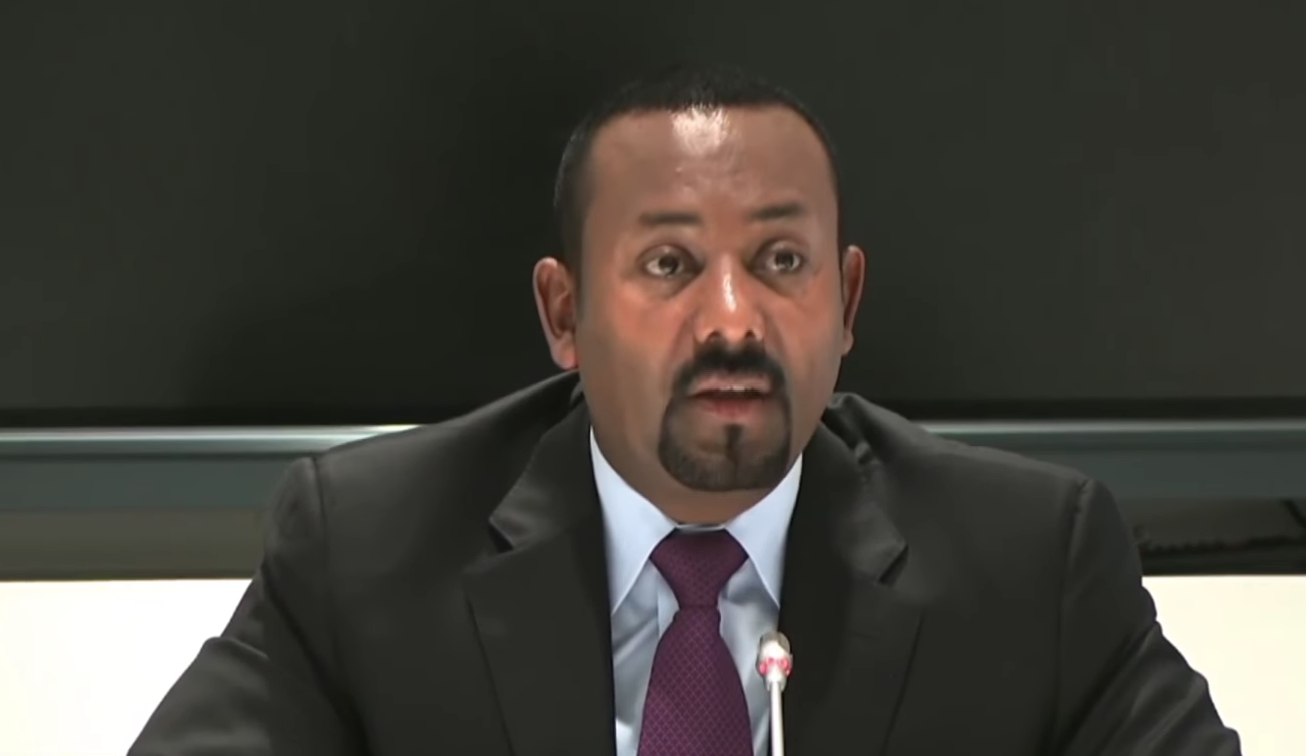
Fortune News | Apr 03,2023
Sep 4 , 2021
By Eden Sahle
A few months back, when my family went to get the first dose of the COVID-19 vaccine, they were turned back although the vaccine was available. The reason was that at least seven individuals were needed to administer one packaged-bottle shot or else the vaccine risks spoilage. But not enough people were coming to get the jabs. Pandemic apathy has gotten this bad.
But COVID-19 is not tiring to remind us that it is not going anywhere anytime soon as we are witnessing the surge of infections all over again, landing people in intensive care units. The positivity rate has reached 16pc and the number of people in intensive care units is around three times its usual figure. It has been some time since more than a dozen people have been dying daily as well.
There is a difference this time around. Some people are getting off the virus without many symptoms, while others are landing in hospitals or even dying. The impact of being vaccinated has revealed itself in such a critical time.
I have heard of tales of people I knew who have recently gone to weddings and parties where COVID precaution was not the priority; some immunised with the vaccine, others without a mask. The result was catastrophic: some have lost their precious lives while others left sick. The vaccinated are escaping tragedies.
Over a year into the pandemic, too many people have not adjusted their lives to the current situation and entice others to join them in social get-togethers without giving much attention to the ruthless killer. These gatherings disregard social distancing rules and the covering of faces. The stark difference now is that vaccines are saving lives.
Since the World Health Organisation (WHO) declared the virus a pandemic back in March 2020, it has claimed 4.5 million lives globally, with tens of thousands of cases being confirmed by laboratory tests daily. The pandemic has impacted almost every corner of our lives, causing the nation's economy to stall, changing how we socialise and interact with our loved ones, and stretching our fragile healthcare system beyond its limit.
In the midst of this, COVID-19 vaccinations are now offering a way to put the pandemic behind us. The only problem is that millions of Ethiopians still do not have access to it. Scientists are warning us that crowd immunity would not be enough to stop the infection and save lives without the vaccines. Unfortunately, we have a tragic scenario where we do not have access to vaccines and the public's willingness to adhere to precautionary measures to protect themselves and others is limited.
As a poor nation, getting access to the vaccine is not easy. Most of the developed world is hoarding the supply, even what they do not need. Despite plans to vaccinate a fifth of the population by the end of the year, it does not seem likely even five percent will receive the jab. To date, only around 2.5 million vaccines have been administered, out of a population of over 100 million.
But there also remains a massive challenge to educate the public about the importance of COVID-19 vaccination and being transparent about the development of the vaccine along with the prevalence of potential adverse effects. As many people are infected and the daily death rate increases, we are all harmed indirectly and directly. We should all feel responsible.
Some countries have proven that the spread of this virus can be significantly slowed or even reversed by implementing robust measures. This is critical for Ethiopia as the jabs that can be administered only cover a fraction of the population.
There should be aggressive enforcement of social distancing rules and general hygiene. The economy may not be in a condition to carry out lockdowns, given that people's livelihoods are on the line. But neither is it possible to ignore this third wave of the pandemic. With an increasing number of people in intensive care struggling to draw a breath, the only way out is to get a vaccine when available and continue protective measures.
Eden Sahle is founder and CEO of Yada Technology Plc. She has studied law with a focus on international economic law. She can be reached at edensah2000@gmail.com.
PUBLISHED ON
Sep 04,2021 [ VOL
22 , NO
1114]

Fortune News | Apr 03,2023

Commentaries | Apr 01,2023

Radar | Feb 05,2022

Editorial | Dec 30,2023

Fortune News | Mar 16,2020

Agenda | Dec 07,2019

Commentaries | Jul 03,2021

Radar | Jun 12,2023

Life Matters | Mar 06,2021

Viewpoints | May 16,2020

My Opinion | 131584 Views | Aug 14,2021

My Opinion | 127940 Views | Aug 21,2021

My Opinion | 125915 Views | Sep 10,2021

My Opinion | 123539 Views | Aug 07,2021

Dec 22 , 2024 . By TIZITA SHEWAFERAW
Charged with transforming colossal state-owned enterprises into modern and competitiv...

Aug 18 , 2024 . By AKSAH ITALO
Although predictable Yonas Zerihun's job in the ride-hailing service is not immune to...

Jul 28 , 2024 . By TIZITA SHEWAFERAW
Unhabitual, perhaps too many, Samuel Gebreyohannes, 38, used to occasionally enjoy a couple of beers at breakfast. However, he recently swit...

Jul 13 , 2024 . By AKSAH ITALO
Investors who rely on tractors, trucks, and field vehicles for commuting, transporting commodities, and f...

Jun 28 , 2025
Meseret Damtie, the assertive auditor general, has never been shy about naming names...

Jun 21 , 2025
A well-worn adage says, “Budget is not destiny, but it is direction.” Examining t...

Jun 14 , 2025
Yet again, the Horn of Africa is bracing for trouble. A region already frayed by wars...

Jun 7 , 2025
Few promises shine brighter in Addis Abeba than the pledge of a roof for every family...

Jun 29 , 2025
Addis Abeba's first rains have coincided with a sweeping rise in private school tuition, prompting the city's education...

Jun 29 , 2025 . By BEZAWIT HULUAGER
Central Bank Governor Mamo Mihretu claimed a bold reconfiguration of monetary policy...

Jun 29 , 2025 . By BEZAWIT HULUAGER
The federal government is betting on a sweeping overhaul of the driver licensing regi...

Jun 29 , 2025 . By NAHOM AYELE
Gadaa Bank has listed 1.2 million shares on the Ethiopian Securities Exchange (ESX),...